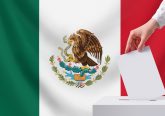Inaction in politics can be comfortable. Politicians might opt for hand wringing to avoid confronting the consequences of their actions, or, in the worst-case, to hide their own complicity. Mexico´s new administration has been in the headlines recently for doing just the opposite: On December 27th of last year, president Andrés Manuel López Obrador announced that his government would confront the large-scale theft of fuel that affects Petróleos Mexicanos (PEMEX). Since then, there have been widespread news of lines and fuel shortages. The situation escalated further on January 18 with the horrific news of 73 people killed and another 76 gravely injured from the explosion of a fuel pipeline in the state of Hidalgo.
Mexico´s New Black Market
What the Obrador administration has decided to confront with a criticisable yet bold frontal strategy, is what I believe to be Mexico´s new main black market: fuel theft and trafficking. Since 2011 Mexico´s complex array of criminal networks (which, unlike the fantasised and fictional cartels, are horizontally organized and resilient groups, that engage in all sorts of both licit and illicit activities) have become increasingly involved in exploiting the main player in the country´s energy sector: PEMEX. Large criminal networks (such as the Zetas, and the powerful Cartel Jalisco Nueva Generación), smaller networks and less sophisticated community-based groups are all involved in this black market through pipeline extraction (from a network that extends 14,000 kilometres), robbery of tank trucks, theft in storage facilities, refineries and marine terminals.
The numbers are nothing short of staggering. A conservative estimate, elaborated through a public information request to PEMEX, assessed that the costs of fuel theft and technical losses in PEMEX´s pipeline network amounted to $160 billion MXN ($7.97 billion USD) between 2009 and 2016. To put this figure in context, this is double the annual budget of Prospera (the main poverty alleviation programme in Mexico) and is equivalent to the original investment required for Mexico City´s new, and recently cancelled, international airport.
During the Peña Nieto administration, estimates such as this one had to rely on guesswork because state officials and institutions closely guarded information about fuel theft. This has changed with the aforementioned press conference López Obrador gave in late December. The President revealed that fuel trafficking amounted to $50 and $70 billion MXN a year ($2.5 to $3.5 billion USD). In 2016, 9,490,000 barrels of hydrocarbons were stolen from PEMEX, representing a loss of $30 billion MXN ($1.5 billion). In 2017, 15,695,000 barrels were robbed, amounting to over $51 billion MXN ($2.6 billion USD). Finally, in 2018, fuel theft stood at 21,243,000 barrels of fuels stolen, a loss of $66 billion MXN ($3.4 billion dollars) for the Mexican state.
AMLO’s New Strategy
The president’s new strategy involves a show of force of federal security forces. The Mexican army and marines will now provide security for 72 PEMEX installations. In 58 high priority facilities, the military and marines monitor and check supply and distribution processes, control entrances and exits of vehicles, monitor installations and guard storage facilities.
In early January, Mexico´s presidential administration closed 7 pipelines (6 of them located in the centre of the country) for several days. The objective was to recover inventoryand regain control of the pipeline network. Currently, soldiers and marines are guarding eleven high-priority pipelines that are crucial for satisfying national demand. This operation includes 5,800 security personnel and 14 aircrafts. The functioning of the pipeline infrastructure is particularly relevant because PEMEX transports 60% to 70% of all petrol through pipelines.
Investigations of individuals suspected of money laundering (including PEMEX officials, local representatives and entrepreneurs) have been initiated, a breath of fresh air in a country whose security strategy has relied for far too long on firearms and not on financial intelligence. Polls show that Mexicans support these actions despite facing fuel shortages. An understandable reaction after six years of the Peña Nieto presidency, during which corruption scandals were cynically ignored.
The Blind Spots of the Strategy
So far, the discourse of President Obrador has presented these measures as a key battle in a larger war against a corrupt elite that has undermined public institutions and filled their pockets from the state’s coffers. While it is true that there has been involvement of corrupt officials at all levels (particularly inside PEMEX), tackling this new black market will require more than just fighting corruption.
Fuel theft and trafficking are increasingly shaping Mexico’s geography of violence. It has shifted Mexico´s criminal networks’ presence away from the regions traditionally related to drug trafficking, and fuelled the rise of violence experienced in the country´s central areas (the Centre and Centre-North regions). Interestingly, these locations are hubs of economic development, with important industrial sectors and trade links, characterized by economic growth rates above the national average.
According to a recent study of lethal violence in the state of Guanajuato elaborated by the think tank México Evalúa, a pattern becomes clear: homicides are concentrated in municipalities in which fuel theft has exploded in recent years. Between January 2015 and September 2018, the number of homicides in Guanajuato grew by 398%. Just during September 2018, 11 people per day were killed in Guanajuato. Specialized fuel-trafficking crime networks and large organized crime networks are engaging in a violent disputes to control fuel trafficking, specifically targeting the Ingeniero Antonio M. Amor Refinery in Salamanca, and the pipelines that run through the municipalities of León, Apaseo el Alto, Apaseo el Grande, Silao, Irapuato and Celaya.[1]
Conclusions
Thus far, Mexico´s president has not made the connection between the criminal violence that plagues Mexico and this new black market. While I welcome and recognize López Obrador´s commitment to tackling the scourge of corruption, I do believe that his strategy has to also address the role of criminal networks.
There are two further problem that, I suspect, the government is dealing with behind closed doors. First, how sustainable is this confrontational approach considering the limitations of Mexican security institutions? And, second, how does the government intend to secure the country’s extensive energy network, especially its hundreds of miles of pipelines. According to data from my research, over 70% of all fuel theft in 2017 and 2018 took place on the pipeline level. Criminal networks will not relent from this lucrative activity without resistance, or simply shift their activity elsewhere, taking advantage of the pipeline network’s size.
In sum, the combination of increasing profits and widespread impunity has created a favourable environment for criminal networks to exploit PEMEX and increase their presence in this emerging black market. Networks specialized in fuel theft and trafficking are increasingly contributing to the alarming levels of violence experienced in parts of Mexico. This is just part of the reason, why we should applaud Lopez Obrador´s boldness in confronting the situation, and hope that his strategy translates into sustainable results. Not just the energy sector, but Mexico as a whole, need them desperately.
[1] From an interview conducted to Gabriel Stargardter, journalist for Reuters who conducted an investigative report on fuel trafficking in the Salamanca refinery in Guanajuato, August 9, 2018.






